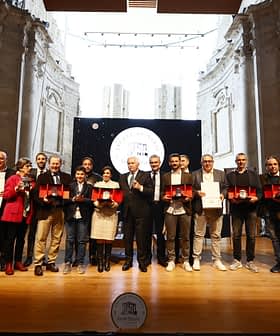Extra virgin olive oil’s high economic value and acclaim as a healthy product have made it a popular target of fraud, researchers from several European universities and institutions said in a joint review.
Along with other food products, including fish, milk, meat, grains, honey, coffee, wine and spices, olive oil is often the target of various illicit practices in the European Union.
The level of attention and the high request in terms of conformity checks have currently improved the quality of the olive oil sold in the market in the last 30 years.
The researchers reviewed the emerging trends in olive oil fraud in the E.U. and other countries as part of the European Commission’s Oleum program.
See Also:Dr. Gundry’s Olive Oil: Controversial Pitchman Peddles a Dose of DeceptionThe researchers gathered data from the Joint Research Center (JRC), the internal scientific service of the European Commission, and several food fraud databases, such as the E.U.‘s RASFF system. They also sent surveys to professionals and other members of the olive oil sector.
Between September 2016 and December 2019, the JRC recorded 32 cases of fraud in the global olive oil industry.
- Sixteen of the cases involved the substitution of olive oil with other oils.
- Eleven cases concerned the mislabeling of olive oils.
- Four cases involved the false use of a geographical indicator.
- Five cases concerned the distribution of counterfeit products.
- Six related to the dilution of olive oils with other oils or inferior grades.
- One case involved theft.
Twenty of the 32 cases occurred in Europe. The most common infringement practices were marketing virgin olive oil as extra virgin and selling blended olive and vegetable oils as pure olive oil.
The researchers also clarified that the number of recorded cases was higher than the actual incidents of fraud since one incident can belong to two different categories of infringement. For example, seed oil sold as extra virgin olive oil is counted as both a case of mislabelling and substitution fraud.
In countries outside of the E.U., olive oil fraud usually included dilution and substitution of oils. For example, in Brazil, the mixing of olive oil with lampante or soybean oil was the most common fraudulent practice.
Further examples of fraud identified by the report included a 2017 incident in which only six of the 35 sampled extra virgin olive oils sold in Danish supermarkets were extra virgin.
In Greece, on the other hand, the police arrested seven people and charged them with adding green dye to sunflower oil and marketing it as olive oil.
In Spain, the world’s largest olive oil cooperative was fined in 2018 for failing to pay the tariffs on imported olive oil from Tunisia, which was then blended with lower quality olive oil and exported to the United States as virgin olive oil.
The same year, a questionnaire addressed to members of the E.U. food fraud network operating in the 28 member states, Switzerland, Norway and Iceland, asked for information regarding common and emerging fraud incidents in the olive oil sector.
The responses revealed that no fraud cases had been recorded in eight countries during the last 12 months.
See Also:Quality Controls in Europe Need Improvement, Study FindsIn the rest of the countries, the most commonly reported fraudulent practices included mixing or marketing virgin or extra virgin olive oil with lower quality olive oils. Cases of mixing olive oil with refined and soft-deodorized oils were reported less frequently.
Apart from the deceptive nature of the fraud itself, there are seldom any health-related issues for consumers when olive oil is mixed with vegetable oils, the researchers noted.
However, there have been cases – most notably, the Spanish toxic oil syndrome back in 1981 – when non-edible rapeseed oil was sold as edible rapeseed oil or olive oil. Consuming non-edible rapeseed oil caused a severe musculoskeletal condition in almost 20,000 people and resulted in 300 deaths.
One of the main factors leading to olive oil fraud identified by the researchers is the existing price gaps between extra virgin and virgin olive oil and among extra virgin olive oils, depending on their place of origin.
Another factor identified in the report is the relatively high quality of the virgin and lampante olive oils produced in the E.U., which makes them easier to blend with extra virgin olive oils and sell very profitably as extra virgin.
The researchers also stressed that despite the cases of fraudulent practices in the olive oil sector, the E.U.’s existing regulatory and control framework results in significantly improved olive oil quality and this needs to be communicated to consumers.
“The level of attention and the high request in terms of conformity checks have currently improved the quality of the olive oil sold in the market in the last 30 years,” Enrico Valli, a researcher at the University of Bologna’s department of agricultural and food sciences, told Olive Oil Times.
“On the other hand, the results highlighted in this scientific article, crossed with the responses obtained by the questionnaires, indicate that to better guarantee olive oil quality and authenticity, there is still the need to ameliorate conformity checks, reduce the cases of disagreement in the classifications, develop improved robust analytical methods and supportive screening tools, in an attempt to try to be one step ahead of fraudsters,” he added.
The researchers concluded that to better secure the quality and authenticity of olive oil, the European Union, International Olive Council and other regulatory bodies should collaborate more closely.
The report recommended that they put forward a joint strategy to bring together sensory and instrumental data and increase the proficiency and cooperation of sensory panels.









